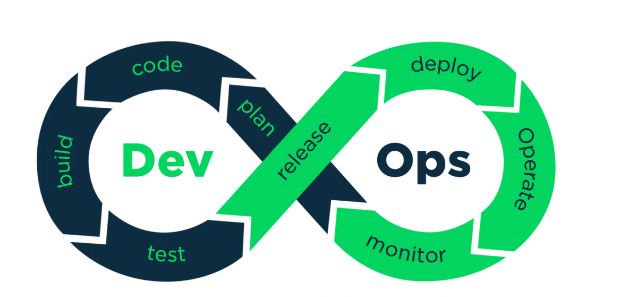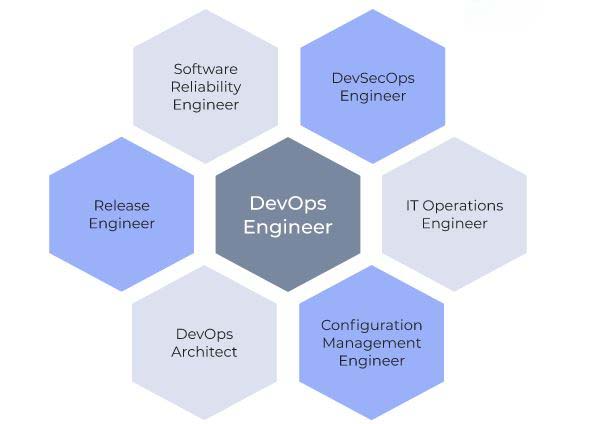
What is Devops Engineer? | Roles and Responsibilities
Last updated on 28th Jan 2023, Artciles, Blog
- In this article you will get
- Introduction
- What is a DevOps engineer?
- DevOps engineer job description
- DevOps Engineer roles and responsibilities
- Essential skills for a DevOps engineer
- DevOps training and skill development
Introduction
DevOps is a technique derived from the experience and best practices of managing the development, testing, and support processes throughout the life cycle of a software development project. These techniques enable firms in managing development, tool deployment, integrated testing, and better productivity and speed.
At the same time, they transfer the crucial parts of continuous integration and continuous deployment to the sole responsibility of the DevOps engineer. Because of the great potential advantages, many firms are either sponsoring or encouraging their staff to attend a reputable Devops course in order to use these techniques in their day-to-day activities.
Traditionally, the development, testing, and support departments worked in silos, resulting in process gaps and conflict in responsibilities as various individuals controlled these roles. Such obstacles were major causes of misunderstandings, miscommunications, and disagreement in priority, and they were demonstrated to be damaging to productivity, resulting in customer unhappiness. The growth of DevOps as a concept and a DevOps engineer job profile has attempted to address these gaps to a large extent.
Furthermore, it provides other technological benefits such as continuous delivery, early detection and rectification of errors, and simple project administration. Business advantages are also extremely significant, such as speedier delivery, KPI management, and enhanced team cooperation. These factors are critical to the consumer experience.
What is a DevOps engineer?
They collaborate with developers to deliver and manage code updates, as well as with operations employees to keep systems up and operating smoothly. A DevOps engineer must have a thorough grasp of both development and operations processes, as well as a solid technical background, to be effective in this profession.
As the corporate sector grows more reliant on technology, the work of a DevOps engineer becomes increasingly vital. Companies want somebody who can help them optimise their processes and make the most of their IT infrastructure. If you have a solid technical experience and want to collaborate with both development and operations personnel, then a job as a DevOps engineer may be ideal for you.

DevOps engineer job description
When reviewing the DevOps engineer job description, we may start by mentioning that the function of a DevOps engineer is crucial to the project’s entire performance, from planning to supporting main KPIs such as customer happiness and productivity. A DevOps Engineer Expert is critical in integrating project functions and resources across the product life cycle, from planning to development, testing, and deployment to support.
DevOps Engineers are well-versed in the technical and IT operations elements of integrated operations. They are expected to be familiar with the numerous automation tools that may be necessary for process automation and testing.
If you find this DevOps Engineer job description interesting and want to make the transition to becoming a DevOps engineer, you must understand how to become a DevOps engineer with a systematic approach to understanding the job function in detail, as well as identifying the required skills and gaps for further improvement. A DevOps job guide is a fantastic place to start. This article gives detailed information about the path to become a DevOps engineer, the technologies involved, and the skills necessary to carry out a DevOps engineer’s responsibilities.
DevOps Engineer roles and responsibilities
A DevOps engineer’s tasks and responsibilities are a mix of technical and management obligations. Excellent communication and coordination abilities are required to effectively integrate diverse tasks in a coordinated way and deliver duties to the satisfaction of the client.
The responsibilities of a DevOps engineer are multifaceted; they must be nimble enough to wear a technical hat while also managing operations.
Some of the primary duties of a DevOps Engineer include:
- Understanding the needs of the client and project KPIs.
- Putting in place different development, testing, automation, and IT infrastructure tools.
- Team organisation, activities, and participation in project management activities are all planned.
- Managing external interfaces and stakeholders.
- Setting up the necessary tools and infrastructure.
- Have the technical ability to evaluate, verify, and validate the project’s software code.
- Techniques for troubleshooting and resolving code errors.
- Monitoring process adherence throughout the lifetime and upgrading or establishing new procedures for improvement and waste reduction.
- Whenever feasible, encourage and implement automated procedures.
- Identifying and applying cybersecurity measures through ongoing performance.
- Assessment of vulnerability and risk management.
- Management of incidents and investigation of fundamental causes.

Essential skills for a DevOps engineer
A DevOps Engineer’s position involves technical abilities in the development cycle as well as operations skills for maintenance and support. Computer Science or Computer Technology degrees can provide some of the technical abilities required to become a DevOps engineer. However, the abilities necessary for managing operations are normally gained via experience or by enrolling in particular development programmes that can assist advance the career in the desired direction.
The following abilities are necessary for a DevOps Engineer role:
- Working knowledge of Linux-based infrastructure.
- Configuration and administration of databases such as MySQL and MongoDB.
- Excellent problem-solving abilities.
- Knowledge of numerous tools, open-source technologies, and cloud services is required.
- Understanding of key DevOps ideas and Agile principles.
DevOps training and skill development
DevOps Engineer Master Certification prepares development engineers to take the next step by providing them with knowledge and skills in DevOps principles such as continuous integration and continuous deployment pipelines, process automation, configuration management, collaboration and team management, service and support agility, and operations management. DevOps Training and expertise of particular tools like Git, Docker, and Jenkins are extremely beneficial in bridging the gaps and moving one step closer to becoming a DevOps Engineer.
Are you looking training with Right Jobs?
Contact Us- A Complete Guide | UI Developer (Skills & Resources)
- How to Become an iOS Developer | Required Skills | Free Guide Tutorial
- Android vs IOS | Know Their Differences and Which Should You Learn?
- What Is a Software Developer | Software Developer job description and duties | Everything You Need to Know
- How to Become a Web Developer? : Everything you Need to Know about the Profile[OverView]
Related Articles
Popular Courses
- Hadoop Developer Training
11025 Learners - Apache Spark With Scala Training
12022 Learners - Apache Storm Training
11141 Learners
- What is Dimension Reduction? | Know the techniques
- Difference between Data Lake vs Data Warehouse: A Complete Guide For Beginners with Best Practices
- What is Dimension Reduction? | Know the techniques
- What does the Yield keyword do and How to use Yield in python ? [ OverView ]
- Agile Sprint Planning | Everything You Need to Know
